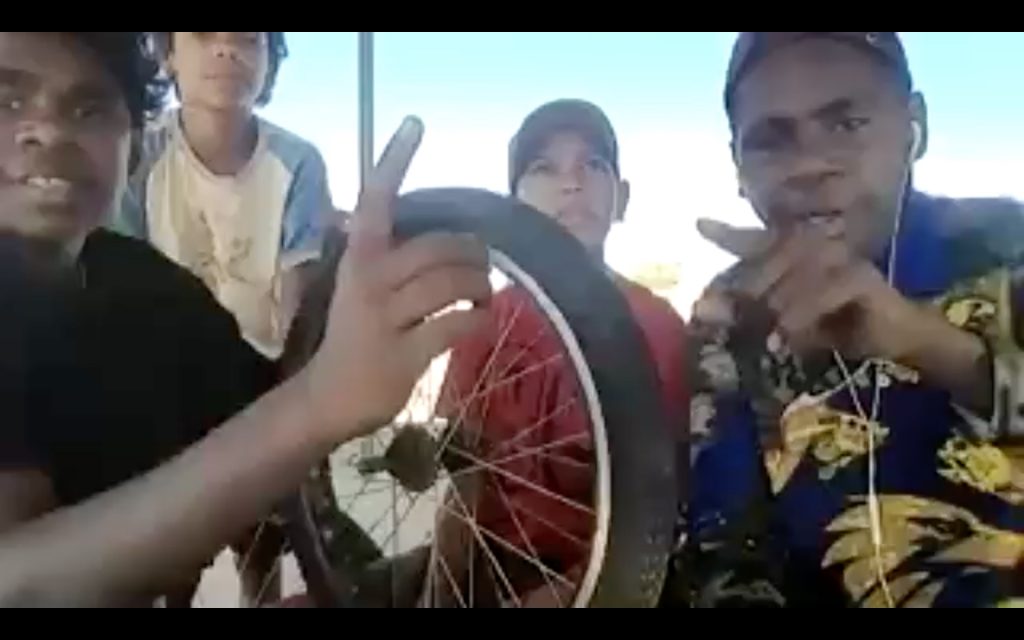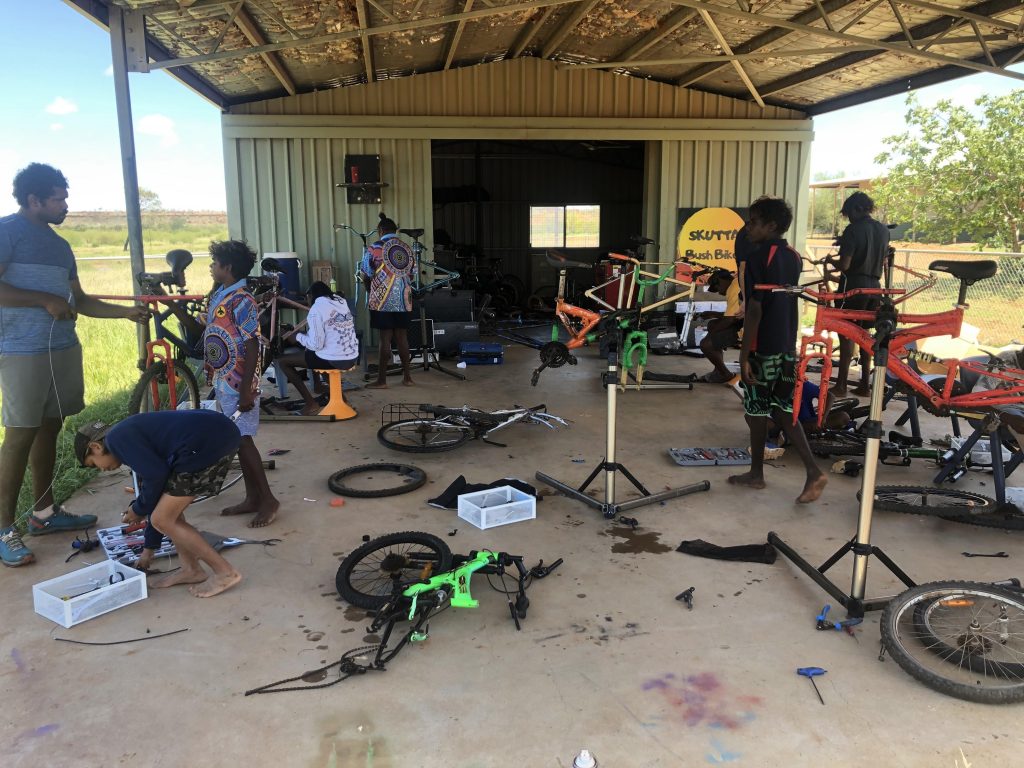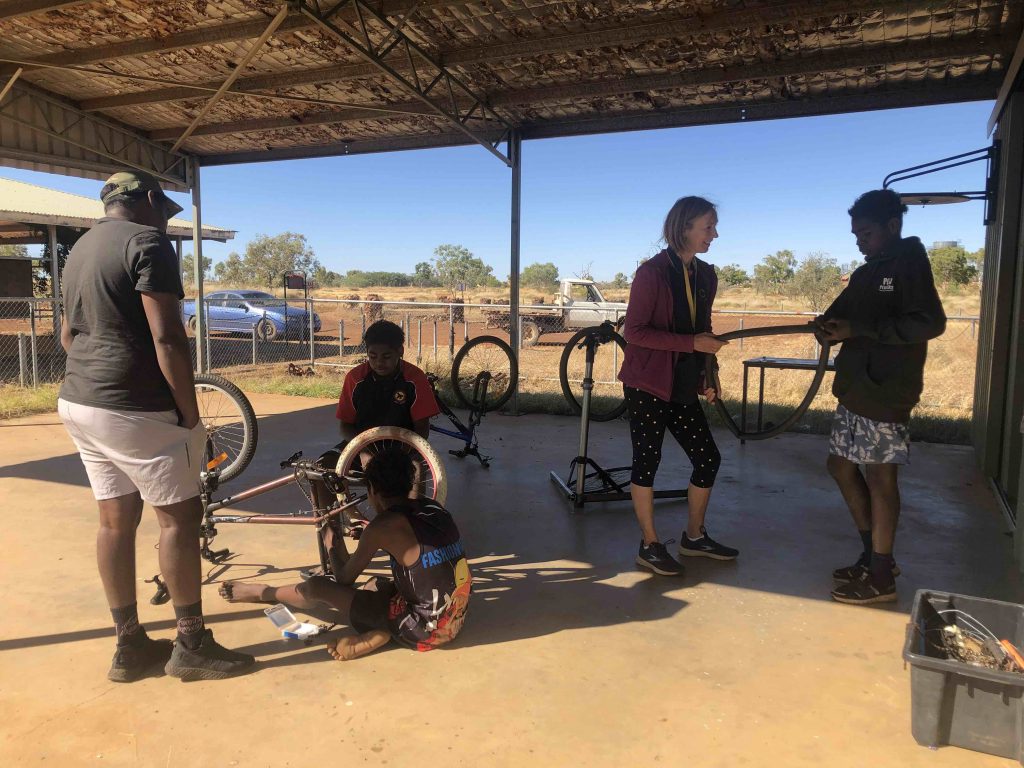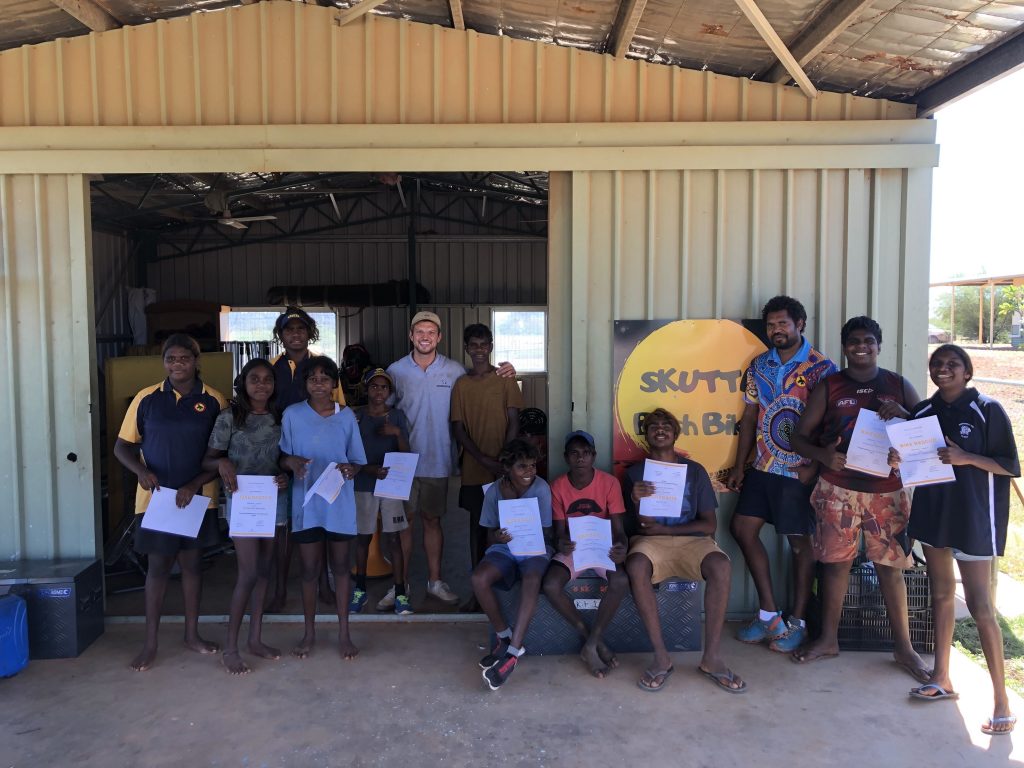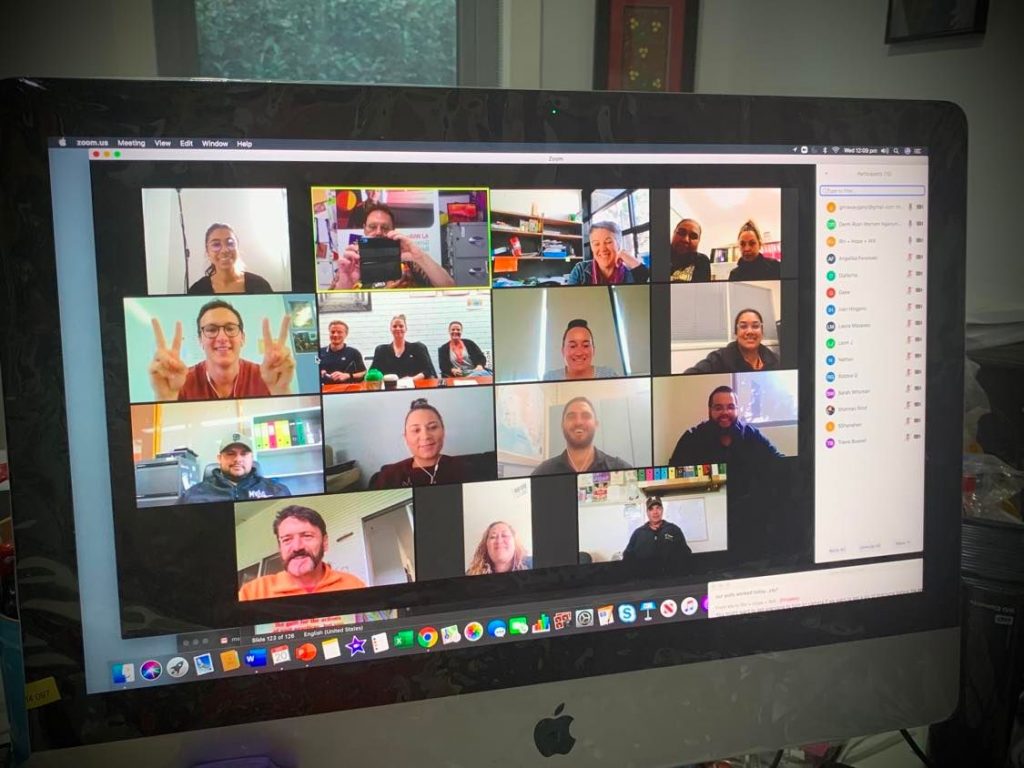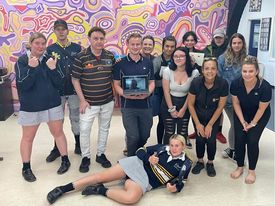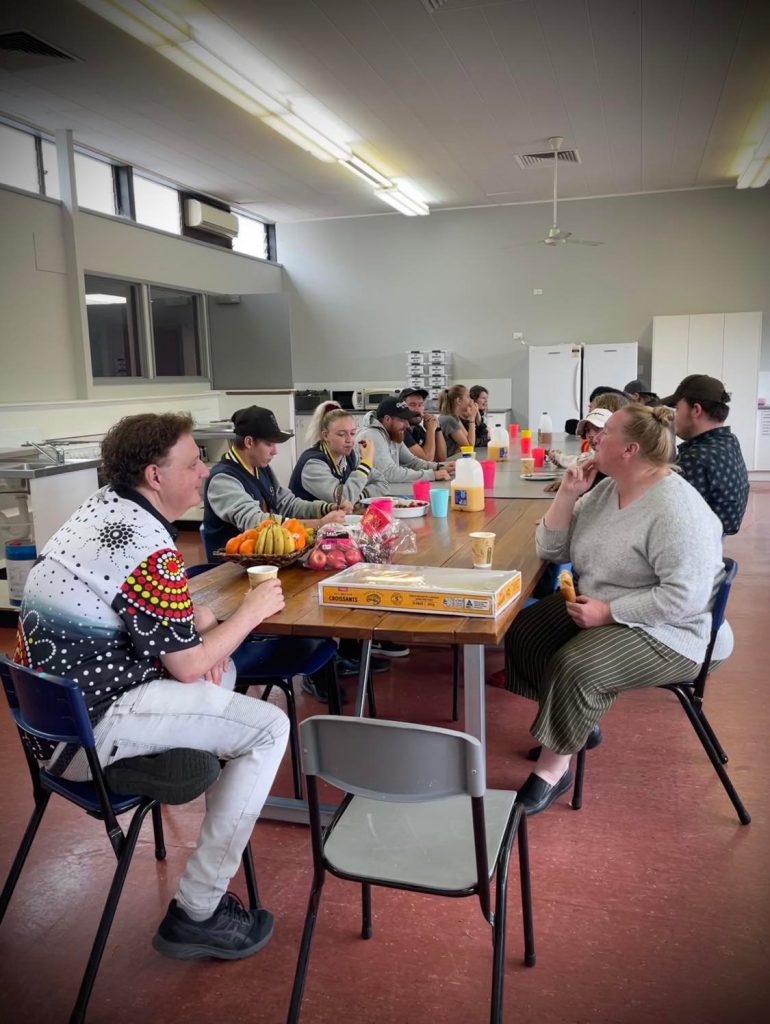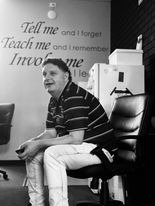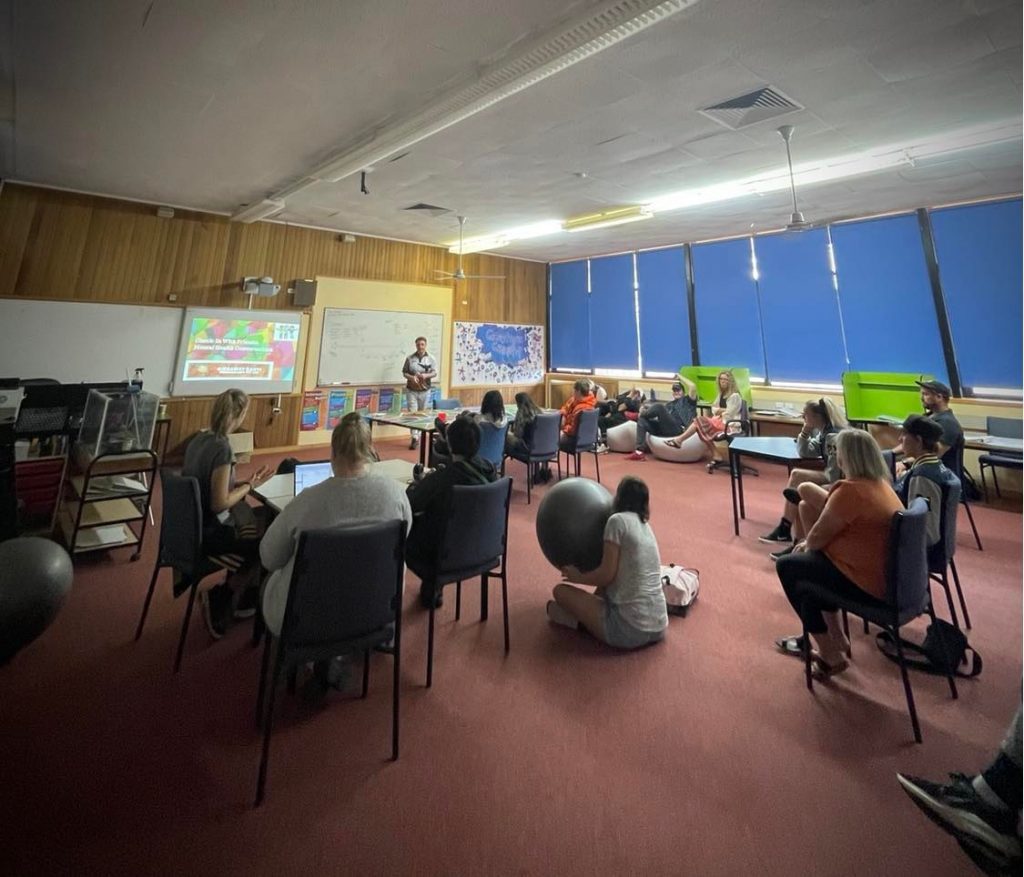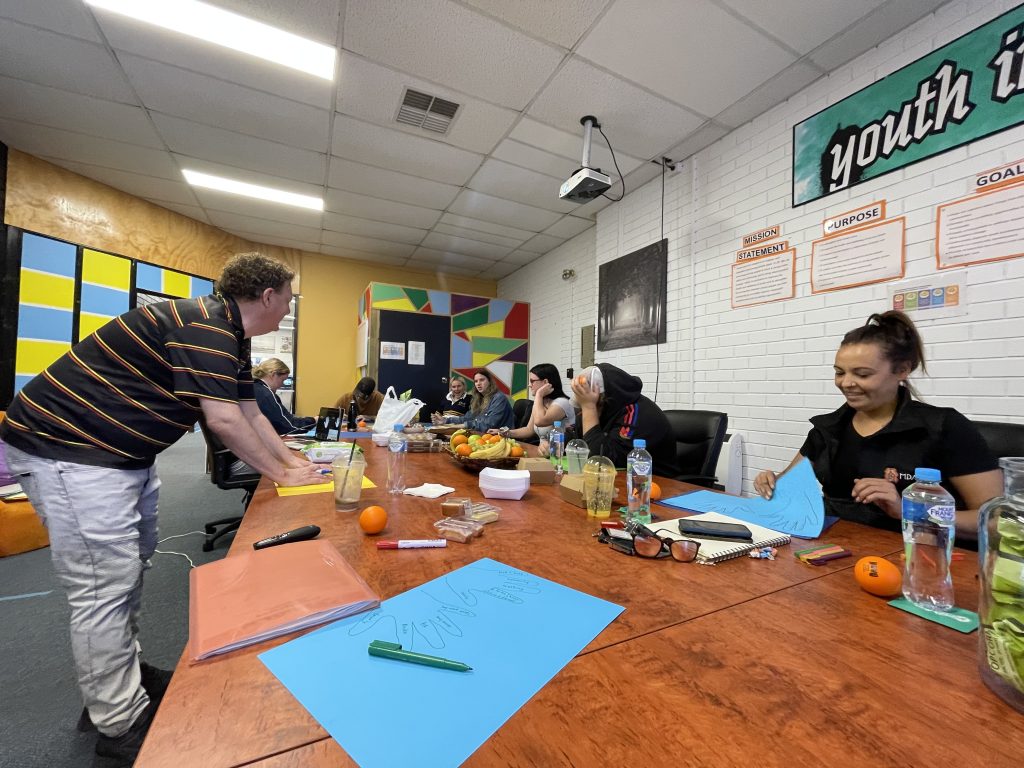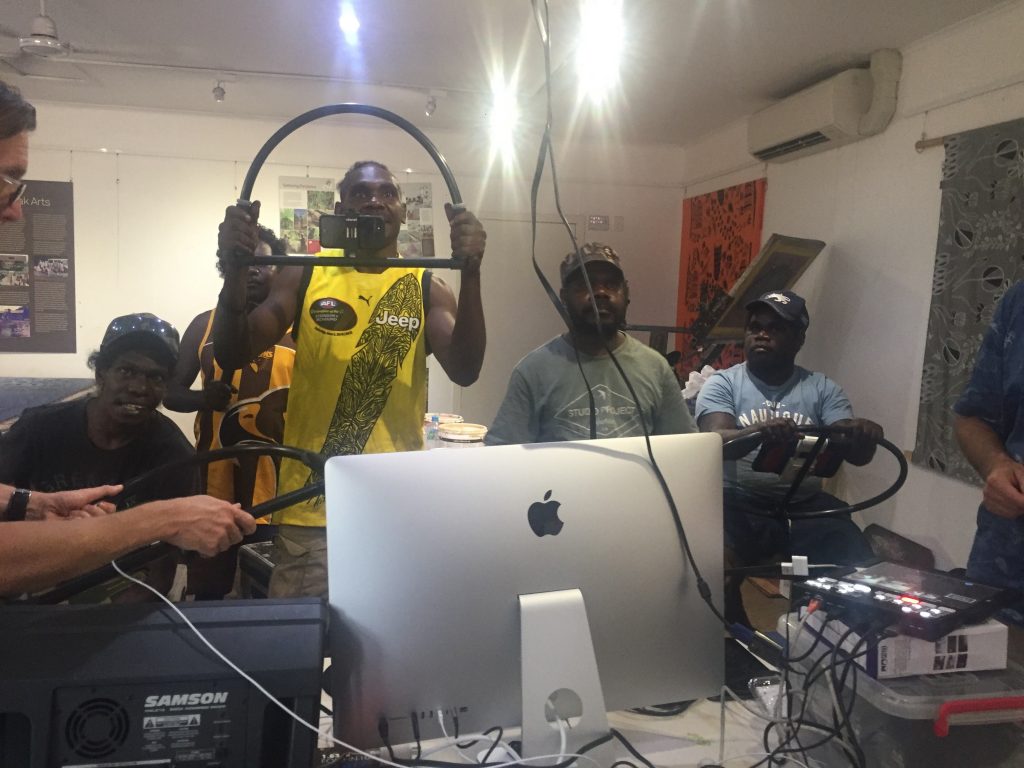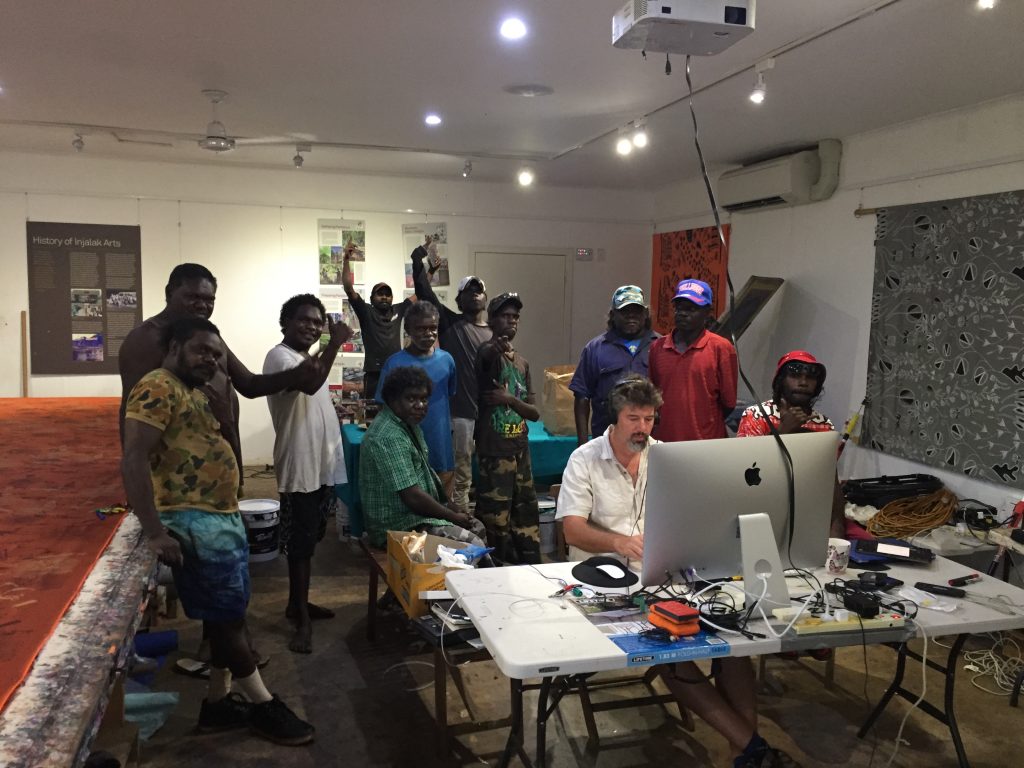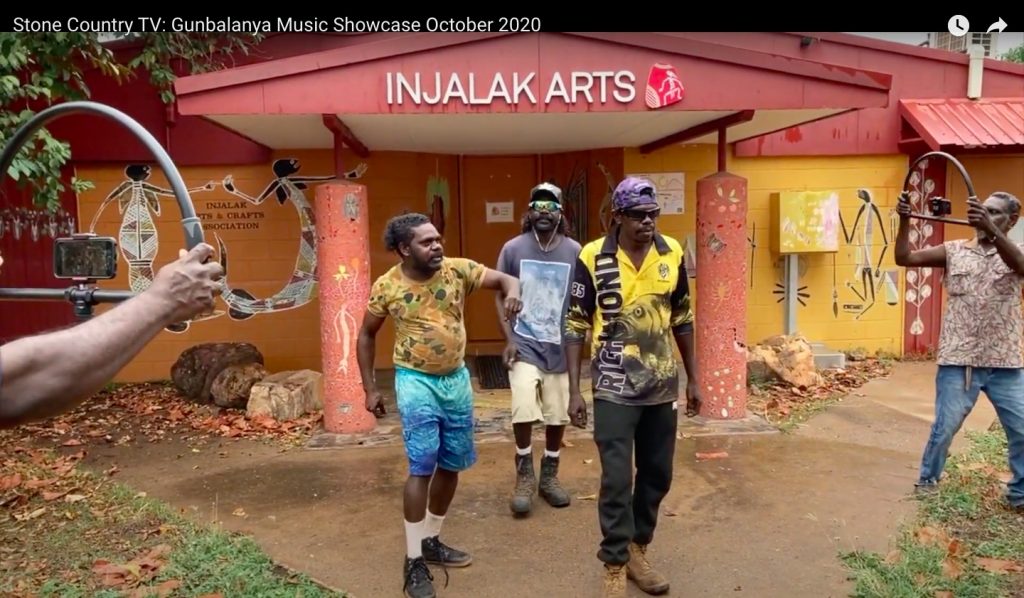Foundation for Rural & Regional Renewal (FRRR)
South Australian Working Group focused on COVID-19 preparation and recovery
The First Nations Philanthropic Funders Working Group (FNPFWG) represents key Aboriginal-led health organisations in South Australia. The Working Group was established to oversee the creation of a community-informed and community-led model to direct philanthropic funding for First Nations communities across the state.
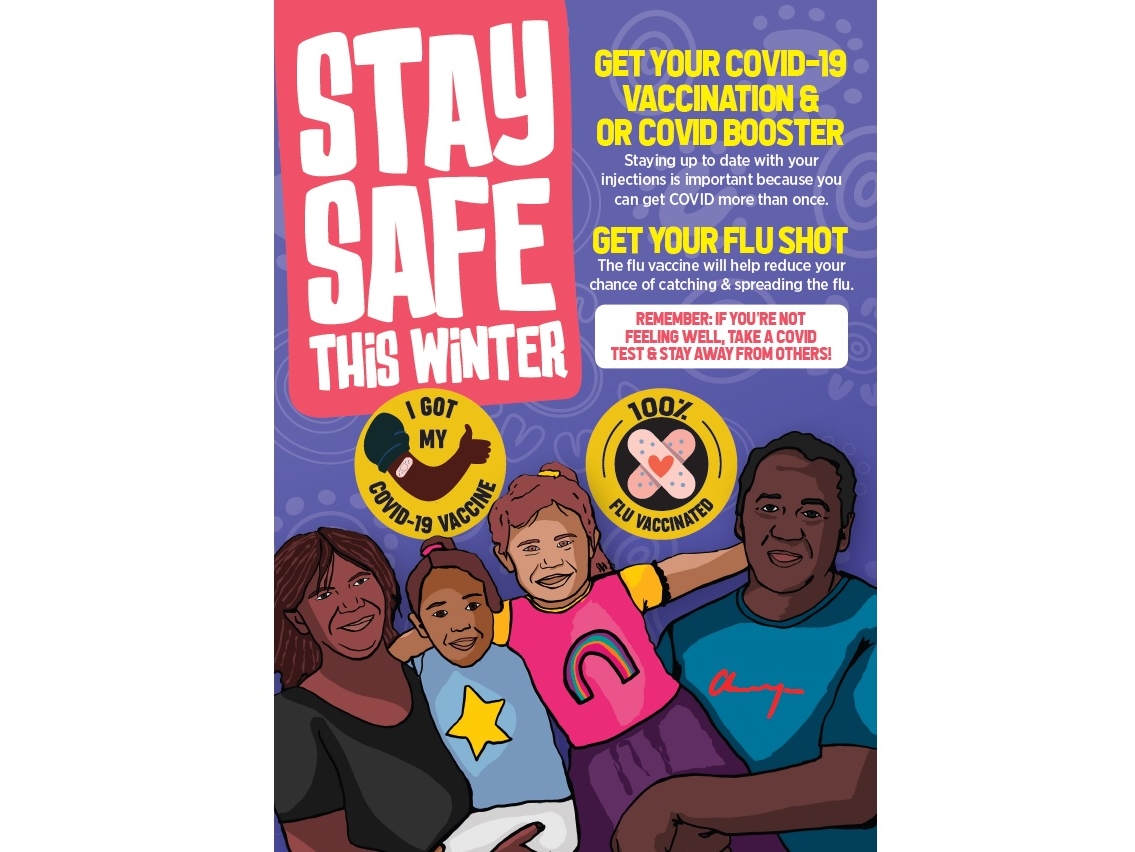
An initial priority of the FNPFWG is to work alongside their communities to respond to the impacts of COVID-19 in ways that best suit their specific situations – ensuring that Aboriginal health is in Aboriginal hands.
The FNPFWG has formed a close partnership with the Fay Fuller Foundation, who provide ongoing resourcing to the Working Group, and more recently, with FRRR. As the Funding Coordinator, FRRR is assisting to administer funds received from major donor partner, Paul Ramsay Foundation.
This funding is dedicated to addressing priorities identified by the Working Group, and the communities they represent, to ensure Aboriginal people are prepared to manage the ongoing impacts of COVID 19 in a way that works best for them. The combination of this partnership approach, together with flexible funding, will ensure solutions for First Nations people in remote, rural, and regional communities are locally-led and locally-determined.
Read the full media release here.
To read more about this initiative visit: https://www.fayfullerfoundation.com.au/first-nations-led-health-funding
By Karly Whelan, Program Manager (VIC/TAS/SA)
Working at FRRR provides many wonderful opportunities to work closely with community. Woor-Dungin’s on-country gatherings are one of these valued opportunities, with Aboriginal Community Controlled Organisations (ACCOs) and philanthropy coming together to develop deeper understanding and stronger relationships. It is a privilege and joy as FRRR’s Victorian Grants Program Manager to attend these annual gatherings.
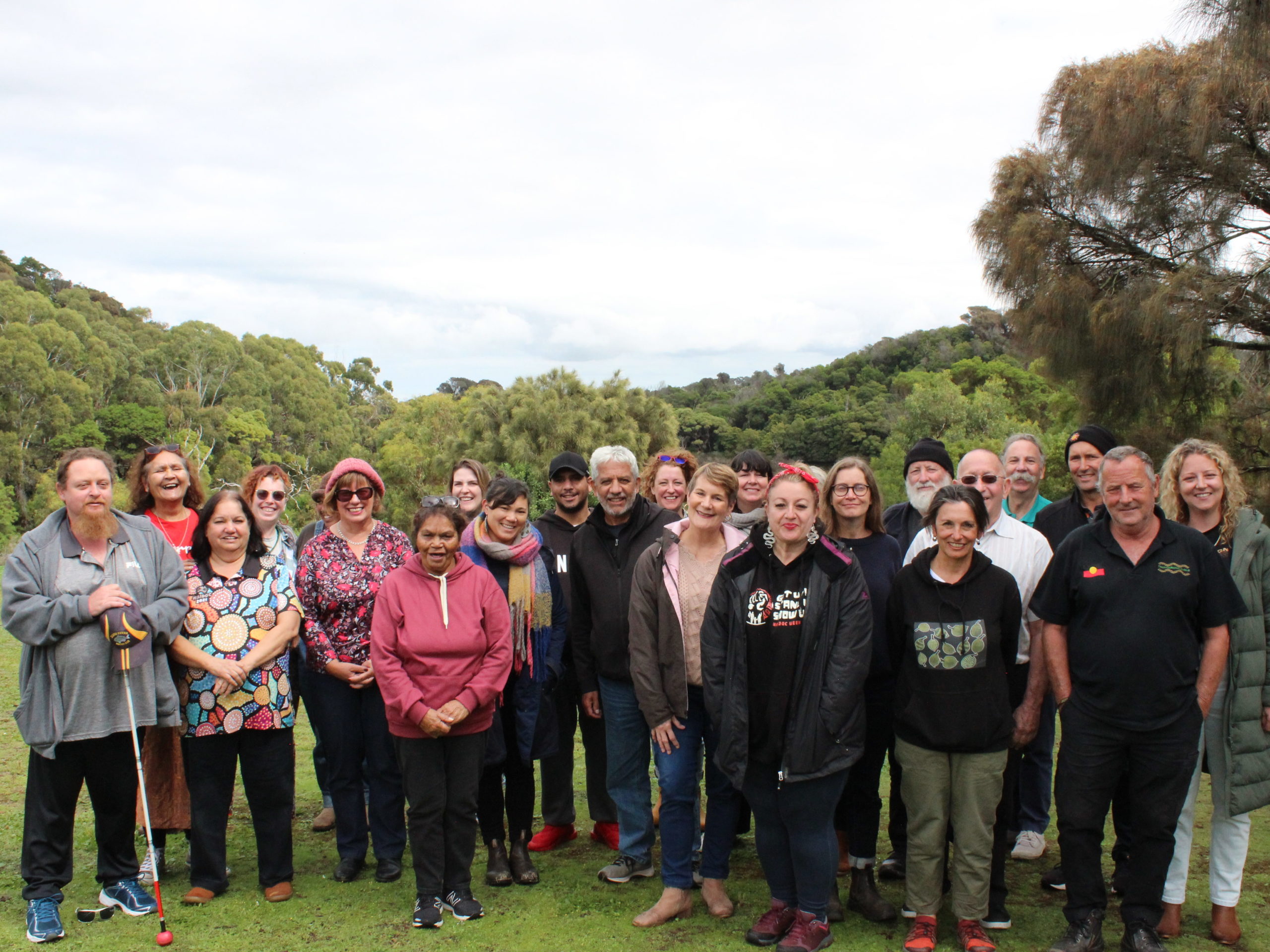
Based in Naarm (Melbourne), Woor-Dungin works with and connects Victorian First Nations groups with resources, pro bono support and philanthropy. Woor-Dungin designed the annual on-country events to support ACCOs with their goals by connecting them in-person with philanthropic organisations.
This year’s gathering took place in late March over three-days on Gunditjmara country in southwest Victoria, where we yarned, enjoyed delicious food, listened, shared insights, and learnt about Gunditjmara culture and country. ACCOs from around Victoria shared their work and impact including developing employment and training programs, deepening understanding of Aboriginal agricultural practices, delivering strength-based health and wellbeing programs, raising awareness and connection to country and culture, creating social enterprises, and artistic endeavours.
It’s not always comfortable – and nor should it be. There is pain and trauma from the ongoing legacy of colonisation and systemic discrimination and injustice. There is also passion and drive, with the gatherings built on the strength and knowledge of First Nations people and organisations.
Philanthropy has a key role to fund gaps, provide resources and create pathways to build capacity and sustain the work of ACCOs. The gatherings provide a space to explore the role of philanthropy in supporting and resourcing First Nations organisations to build capacity, deliver services and programs, and develop innovative projects. It encourages philanthropic organisations to look through the grantseeker’s lens to ensure our programs are responsive, culturally appropriate and accessible for more impactful granting.
I came away invigorated from the gathering, with my head and heart full of meeting new people and reconnecting with others, discussing ways for philanthropy and First Nations groups to forge stronger relationships, and from seeing and listening to the strength and determination of First Nations people. It is a powerful way to learn and share, and to continue developing culturally respectful partnerships built on mutual understanding and trust.
Gooniyandi Country
The town of Yiyili is located six hours east of Broome in the heart of the Kimberley region. At the town school, 90% of the time, fewer than one third of students are in attendance. This is often due to young people being impacted by intergenerational trauma and grief, family and domestic violence and drug and alcohol abuse, all of which are contributing to poor mental and physical health in the youth of Yiyili.
With engagement in education and work steadily decreasing, last year the Yiyili Aboriginal School decided to start ‘BikeRescue’, a program where young people could attend multiple workshops each week to refurbish and repair second-hand bikes.
Supported with a $25,000 Strengthening Rural Communities grant, funded by John T Reid Charitable Trusts, the training was carried out by Youth Councillors, as well as bicycle maintenance and refurbishment specialists. During the sessions, the students were taught how to adjust gears, fit new brakes, clean and maintain bikes and organise the workshop to function more efficiently. There was also a strong focus on self-management, resilience and self-regulation.
At the end of the program, the students sold the bikes to give them an understanding of how to run a small business. As an added benefit, this meant that there were affordable bikes available to children and adults in the community. The students that participated in the program were also allowed to each keep a bike for themselves.
As a result, the young people were really proud of the bikes they had managed to rescue, and of having invested their time and energy into a productive project. By participating, they also strengthened their community connections and developed more positive attitudes towards school and work.
As an added bonus, community members have been employed by the school on a casual basis to help students run the bicycle repair workshop and the Yiyili community group have secured funding to continue running the program.
Youth mental health is an issue that many organisations and communities across the country work hard to improve. Raising awareness through conversation and proper guidance is crucial to improving and strengthening the mental health of young Australians. In the northwest of Victoria, you’ll find the city of Swan Hill where Youth Affairs Council Victoria (YACVic) are doing just that. As the leading advocate for young people aged 12-25 in Victoria, they work closely with young Victorians and the sector to support them and deliver effective advocacy.
Over the past two years, YACVic have hosted the ‘Turning Ideas into Action’ and ‘What Matters’ youth forums across Victoria. Through these forums, young people have identified mental health as a major priority. A report conducted in 2010 (Working Together: Aboriginal and Torres Strait Islander Mental Health and Wellbeing Principles and Practice) identified young Aboriginal people are at increased risk of experiencing mental illness and are also less likely to engage with mainstream youth mental health services. To improve this situation, YACVic wanted to create a space that would be culturally safe and relevant for Aboriginal and Torres Strait Islander youth.
YACVic sought funding to deliver culturally specific Mental Health First Aid (MHFA) training program – Deadly Yarning & Learning. The training session would target 20 Aboriginal and Torres Strait Islander young people and then ten additional people to work with them on a regular basis as mentors in Swan Hill and Robinvale. The training would be provided by AJ Williams-tchen from Girraway Ganyi to make sure that both the content and delivery is done in a competent and safe manner.
Using a $13,480 In a Good Place (IAGP) grant, supported by CCI Giving, YACVic would partner with local services in the area including Mallee District Aboriginal Services and Robinvale Secondary College to provide the training over two days in each location. The following six months would then involve regular monthly community of practice sessions for the 20 participants to discuss how they have been able to put into practice their training since the initial sessions. The catch ups would also be used as a safe space for debriefing and continued peer learning and development, but also as a way to identify any key issues that had arisen in the community.
After having one training session in each location, YACVic were required to quickly adapt the original plan, with the COVID pandemic and lockdowns causing serious disruptions to the project. To ensure the safety of everyone involved, YACVic decided to postpone the face-to-face youth training component of the project until restrictions eased. They were, however, able to take the mentor training online, which proved to be quite beneficial as they were able to bring five more people on as mentors.
By undertaking the training and participating in the monthly community of practice sessions, Aboriginal and Torres Strait Islander young people will gain skills in MHFA, connect with each other, relevant workers and service providers and increase their confidence and leadership skills while helping to shape local, culturally safe responses to mental health.
A grant originally intended to help the Gong-Dal Aboriginal Corporation increase opportunities for the Gapuwiyak community in East Arnhem Land was partially diverted to help the community respond to COVID.
The FRRR Westpac Rural Communities Grant of $10,000 was originally intended for tourism business education and mentoring programs in the Northern Territory, to support the organisation in its capacity and capability as it embarked on a niche tourism venture. However, as 2020 unfolded, the organisation recognised that there was a more urgent need to support the community in managing and responding to the emergency that COVID had created.
General Manager Juli Cathcart said that half the grant was used to employ experienced facilitators to run workshops, develop resources and support community engagement with the Gapuwiyak and Homelands COVID-19 Dhäwu Ganamirr Mala (COVID-19 Both-Ways Community Engagement Group).
The second half was directed toward the original purpose and used for facilitating workshops, recording and documenting the Miriŋu Dhukarr – Warriors’ Walk – cultural tourism project.
The COVID-19 response group was formed by Yolŋu leaders to provide intercultural advice to government agencies and other stakeholders and ensure culturally safe and appropriate community engagement.
The facilitation included education and training for 15 local Yolŋu people about COVID and a Local Pandemic Action Plan and Outbreak Management Plan. It included key materials in plain English and Djambarrpuyŋu, the local Indigenous language, as well as ‘just-in-time’ advice and support for the local police, clinic and other stakeholders.
This work empowered 900 local Yolŋu community residents in Gapuwiyak and Homelands by giving them knowledge and understanding they needed to keep their families informed of COVID and the NT government responses.
“This ensured a highly responsive and culturally safe COVID Local Pandemic Action Plan, and directly contributed to the development of respectful and trusting relationships between local Yolŋu leaders and community members, and our stakeholder organisations and employees in relation to the local management of COVID and safety of Gapuwiyak and our Homeland communities,” Juli Cathcart said.
“Feedback received was that as a result of this work, local Yolŋu community members felt respected, well informed, heard, assured, secure and safe in a time of great uncertainty, which improved everyone’s quality of life. This work was also key in the development of trusting relationships between stakeholders and Yolŋu community members. The very high uptake of vaccinations in Gapuwiyak and Homelands (80% of eligible community members) compared to other Aboriginal communities and the rest of Australia in 2021 can also largely be attributed to this work. This is a potentially life-saving outcome in a community where chronic disease placed at least 60% of our population in extreme danger if they should contract the coronavirus.”
The second part of the funding supported the development of a museum and a Yolŋu cultural tourism initiative comprising a series of heritage trails across Arnhemland. They follow the foot patrols of the Miriŋu (Yolŋu warriors) who formed the first Northern Reconnaissance Unit with Dr Donald Thompson and defended the Northern coastline during WWII. A high-quality documentary about the Miriŋu Dhukarr Project will also to attract funding to enable the development of this Yolŋu cultural heritage trail and tourism initiative that is of huge local cultural and historical importance as well as of National historical significance.
It is also funding ongoing workshops to enable Yolŋu Elders and Leaders to work with both Yolŋu and Balanda soldiers and veterans, as well as young Yolŋu people to ensure the intergenerational transfer of important and endangered Miriŋu cultural traditions, stories, knowledge and skills.
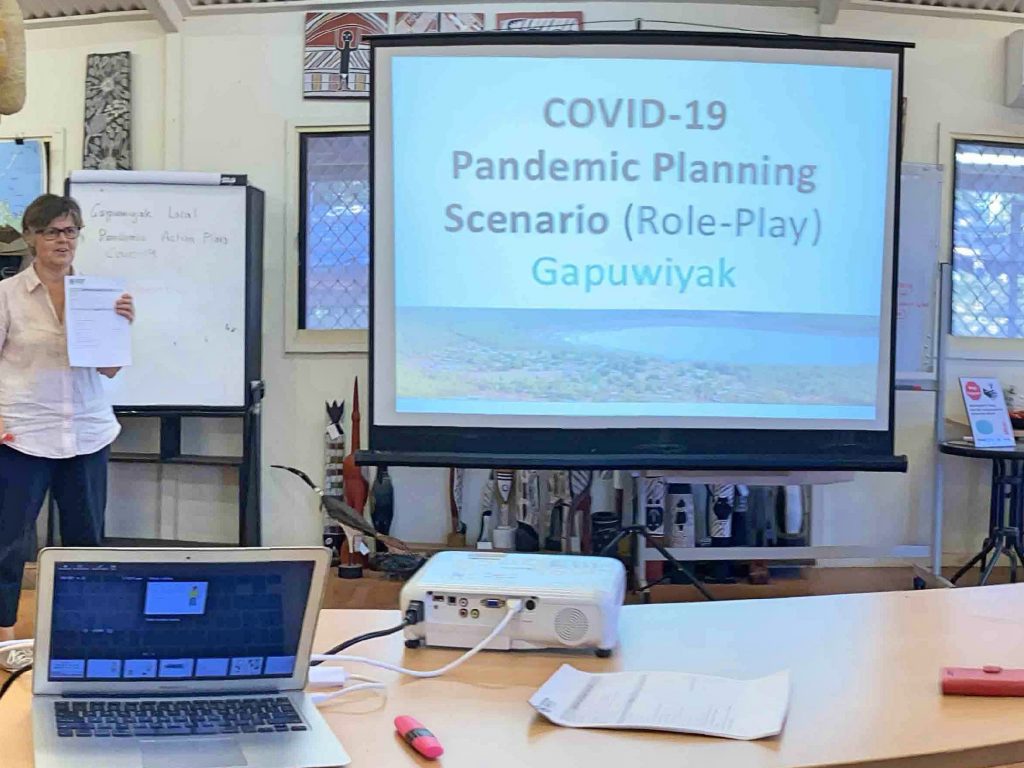
The traditional owners of Gunbalanya is the Gumurdul family who allow Injalak to operate on their land and are actively supportive of the art centre.
About 500 km from Darwin, you can find the region of Arnhem Land, in the Northern Territory. For six months of the year, you can cross the East Alligator River to Gunbalanya. For the remainder of the year, the river is too high, cutting Gunbalanya and the 1,200 people that live there, off from the rest of the country.
Like many First Nations communities, Gunbalanya is rich with culture and heritage, with a strong desire to pass on this traditional knowledge, particularly among young people. Indigenous community art centres play an important role in the artistic and cultural life of traditional Aboriginal artists living in remote communities.
Gunbalunya’s Injalak Arts centre in West Arnhem Land supports over 350 Indigenous Kunwinjku artists. They provide professional development programmes, workshops, mentoring support and On Country trips to collect art materials. Pre-COVID times, thousands of tourists would visit Injalak Arts every year to witness the art, music, natural environment, and many other culturally significant activities.
In the midst of COVID restrictions, with no visitors to the region allowed, Injalak Arts ran a two-week music workshop and a week-long live video production workshop that involved local musicians recording and rehearsing songs, as well as coaching and mentoring for eight members of the newly formed Media Unit who learnt all about live production. Thanks to a $10,000 Strengthening Rural Communities grant, funded by the Tim Fairfax Family Foundation, Injalak Arts was able to pay artist and consultation fees with Indigenous Australians who led the workshops.
The COVID-19 restrictions, and subsequent absence of any visitors to witness the performance, weren’t an issue for the production team, as the Media Unit used iPhones and iPads to stream the performance. People across the country were able to tune in, with some even watching from the UK.
The project brought the community together and provided an opportunity to demonstrate their creative expertise and talents, as well as developing new skills in live television production.
Injalak Arts’ Culture and Media Officer Alex Ressel explained the grant has had ongoing benefits for the community.
“We have since utilised this experience and equipment on other video projects in western Arnhem Land, so it is not necessary to employ external camera operators to document and live stream cultural events in western Arnhem Land.
“When bininj (Indigenous) people are behind the camera as well as in front of it, a radically different form of moving image work is created, enabling a culture to define its own mode of representation, ask the right questions.
“It means we can employ local Indigenous people and keep money circulating within community, as well as making the representation of Kunwinjku culture to wide and diverse audiences.”
The National Remote Indigenous Media Festival is First Nations Media Australia’s major industry event celebrating achievements and supporting the training of the remote Indigenous media sector. Each year the festival location alternates between remote desert and coastal communities to make it as accessible and relevant for its participants as possible. With the annual change in locations comes the need to source funding.
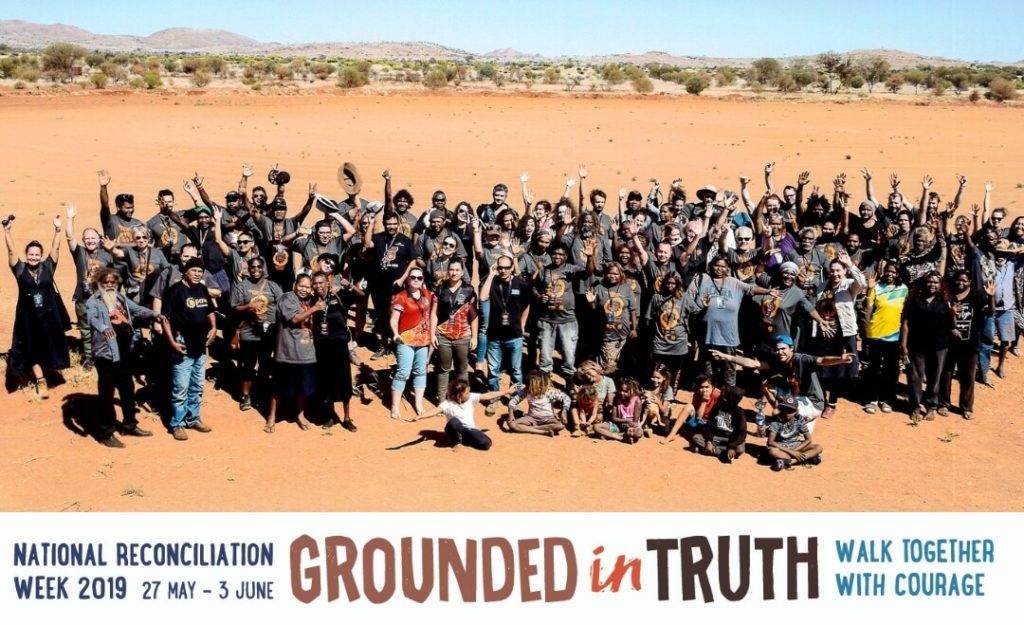
First Nations Media Australia, formerly known as the Indigenous Remote Communications Association is the peak body representing and supporting the media and communications needs of remote Aboriginal and Torres Strait Islander people.
The organisation advocates for community-focused broadcasting, providing tools, networks and resources to support Indigenous media organisations and workers to upskill and build their capacity.
First Nations Media Australia secured $5,000 from FRRR’s Small Grants for Rural Communities program, funded by The Pratt Foundation, to purchase iPads, mobile phones and software to help deliver one of the 2017 festival’s key workshops, Working with Mobile Devices.
More than 100 remote Indigenous media outlets and industry partners from across Australia gathered in the community of Irrunytju (Wingellina) on Ngaanyatjarra country – about 1,700 kilometres north east of Perth near the borders of Western Australia and South Australia for an action-packed week-long industry event.
The festival provided an opportunity for delegates to work together toward innovative solutions for the challenges faced by the remote media sector, connecting people, places and stories across the country to strengthen culture, identity, and well-being. It involved industry forums and skills development workshops led by inspiring trainers and facilitators, and in the evenings, time was spent enjoying, acknowledging and celebrating local culture and talent, including movies, music and award presentations.
Some great work was produced during the workshop, including a high-quality animation entitled 7 Sisters, which was created by trainees and showcased at the final day’s workshop presentations to much acclaim by delegates. In most cases, participants were able to work independently after the initial training.
This small grant helped more than 100 people from remote Indigenous communities and media organisations to gain meaningful training and industry knowledge from experienced trainers and Indigenous leaders. Participants left inspired, enthused and more confident about their work in the sector.
Examples of completed work can be viewed on https://firstnationsmedia.org.au/.

